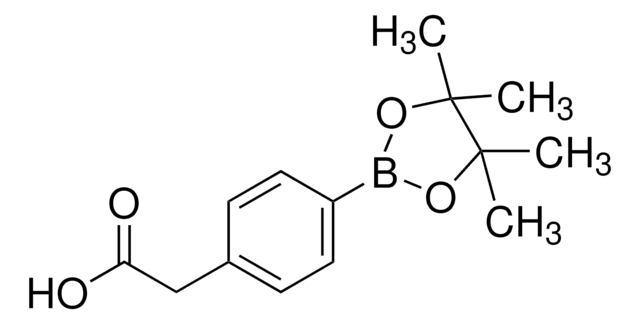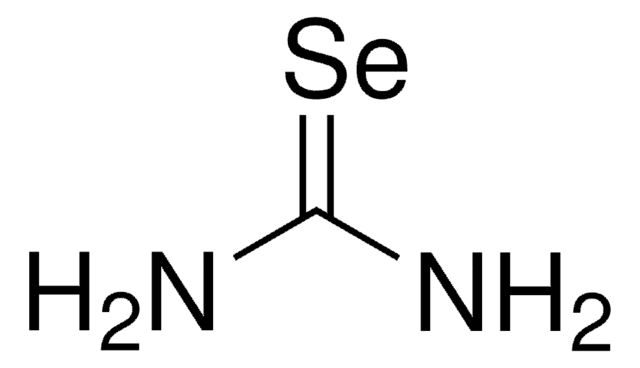S0520
Selenocystamine dihydrochloride
>98% (TLC), suitable for ligand binding assays
Synonym(s):
2,2′-diselenobis-Ethanamine hydrochloride (1:2)
About This Item
Recommended Products
product name
Selenocystamine dihydrochloride, powder
Assay
>98% (TLC)
form
powder
technique(s)
ligand binding assay: suitable
color
yellow to orange
solubility
H2O: soluble, clear to slightly hazy
SMILES string
NCC[Se][Se]CCN.[H]Cl.[H]Cl
InChI
1S/C4H12N2Se2.ClH/c5-1-3-7-8-4-2-6;/h1-6H2;1H
InChI key
PKRYDZYGNSZBHO-UHFFFAOYSA-N
Looking for similar products? Visit Product Comparison Guide
General description
Application
Signal Word
Danger
Hazard Statements
Precautionary Statements
Hazard Classifications
Acute Tox. 3 Inhalation - Acute Tox. 3 Oral - Aquatic Acute 1 - Aquatic Chronic 1 - STOT RE 2
Storage Class Code
6.1C - Combustible acute toxic Cat.3 / toxic compounds or compounds which causing chronic effects
WGK
WGK 3
Personal Protective Equipment
Certificates of Analysis (COA)
Search for Certificates of Analysis (COA) by entering the products Lot/Batch Number. Lot and Batch Numbers can be found on a product’s label following the words ‘Lot’ or ‘Batch’.
Already Own This Product?
Find documentation for the products that you have recently purchased in the Document Library.
Customers Also Viewed
Our team of scientists has experience in all areas of research including Life Science, Material Science, Chemical Synthesis, Chromatography, Analytical and many others.
Contact Technical Service



















